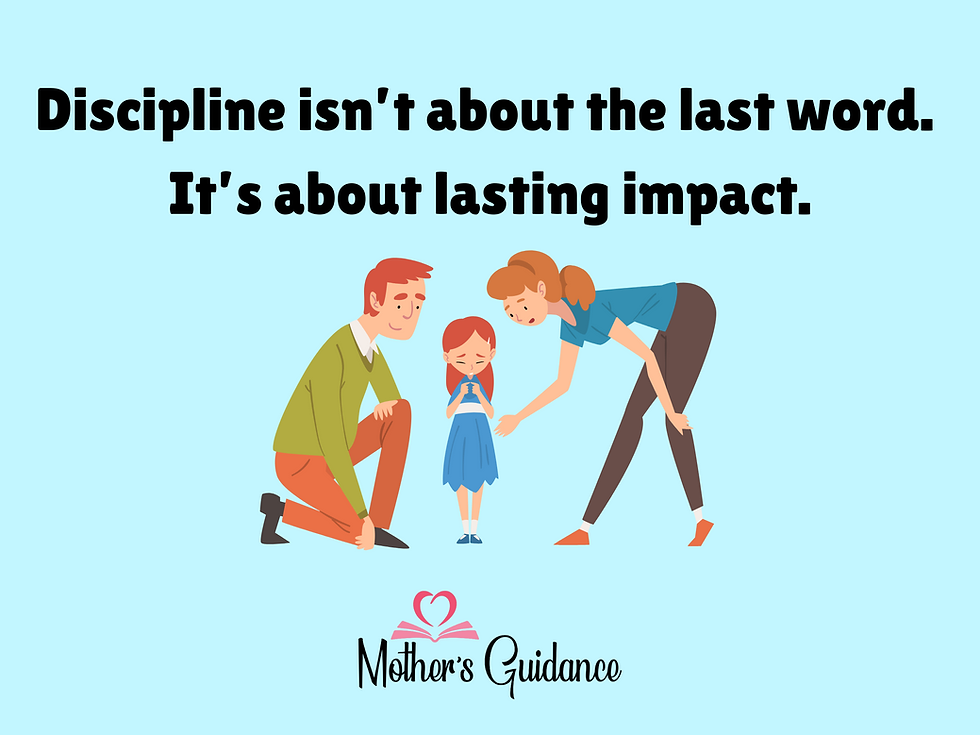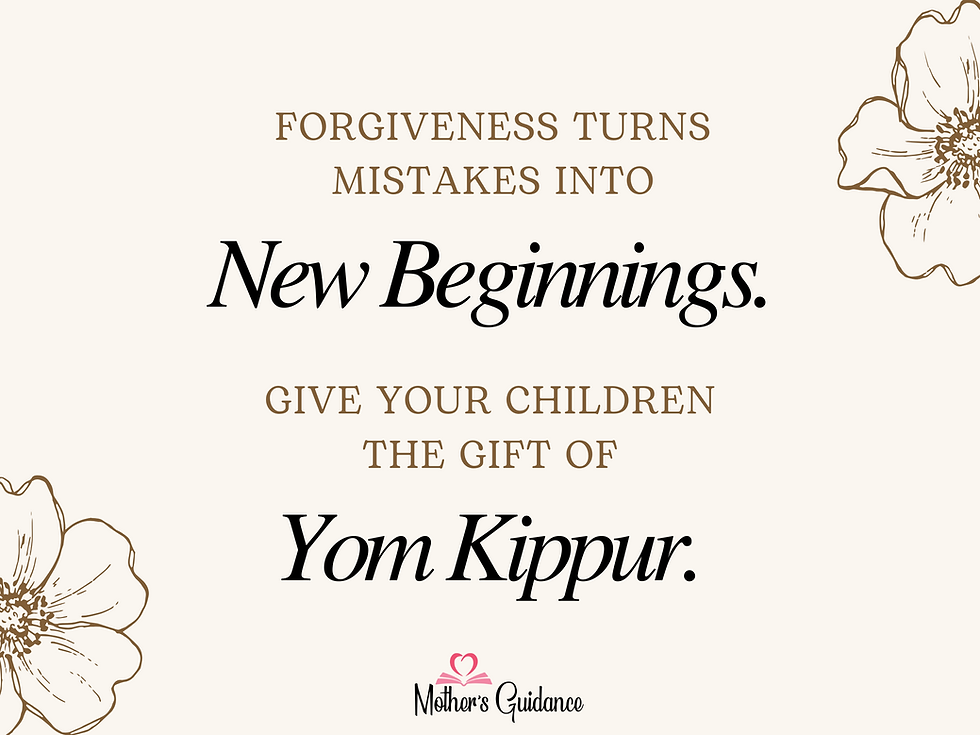From Frustration to Impact: The Discipline Shift That Changes Everything
- Jul 29, 2025
- 3 min read
Originally written 07/20/23, Updated 07/29/25
Have you ever been in public while your child has a complete meltdown, and you feel pressured to say something (anything!) because of all the (perceived) judgmental eyes on you? You know your child can’t hear a word you’re saying, but you speak anyway, just to feel a bit better in front of your “audience.” We’ve all been there at some point.
But in the beginning of Deuteronomy, Moses shows us a completely different way to respond.
As he prepares for his death, Moses gathers the entire Jewish nation and reviews the key events of the past forty years. Jewish tradition teaches that while reviewing their travels in the desert, each location he mentions is a subtle reference to a misstep or sin. The site Di-zahav (abundance of gold), for example, hints at the sin of the Golden Calf.
Why did Moses wait until his final weeks to bring these things up? And why speak in veiled allusions instead of direct statements?
Because his goal wasn’t to vent. It wasn’t to “finally say what needed to be said.” Moses wanted his words to land. He wanted them to last. As the people stood on the edge of entering the Land of Israel, he was focused on guiding their future not rehashing their past.
And that, I think, is the essence of wise discipline.
Here are three parenting takeaways from Moses’ example:
1. Timing
Moses waited until the events were far in the past and until his audience was emotionally open and receptive. He wasn’t trying to correct behavior in the moment, he was choosing a time when the people could actually hear him without becoming defensive.
We can do the same. When your child is upset or in the middle of suffering consequences of their poor choices, they’re not in a place to reflect or learn. Even if you say nothing, they often know they've messed up. Wait until the storm has passed and the connection between you is flowing again before you discuss what went wrong. That’s when they’ll be able to hear you and when you’re most likely to speak with compassion instead of frustration.
2. Sensitivity to Honor
Moses didn’t list sins outright, he hinted at them. Not because he was avoiding hard truths, but because he wanted to protect the people’s dignity. They had already endured consequences. There was no need to re-shame them.
Our children deserve the same care. No one likes being told they did something wrong, especially by someone they love and admire. So choose words that assume positive intent, even if you’re not fully convinced. Saying, “I know you didn’t mean to be disrespectful,” will open your child’s heart much more than, “You’re so rude.”
3. Goal-Oriented Guidance
Moses wasn’t giving a history lesson, he was guiding the people toward a better future. His words were meant to shape their decisions going forward.
Our parenting should be the same. What’s done is done. Our role is to help our children grow from their mistakes and feel capable of doing better next time. That means spending less time dissecting what went wrong, and more time exploring what could go better. Our children should walk away from correction feeling empowered, not ashamed.
When we choose timing, speak with sensitivity, and stay focused on the future, we discipline in a way that builds wisdom and strengthens the relationship, not just compliance.
For more practical guidance on how to discipline with wisdom for elementary aged children and adolescents, watch Parenting for Children to Listen and Thriving with Teenagers:
Parenting for Children to Listen
Buy Now
Thriving With Teenagers
Buy Now





Comments